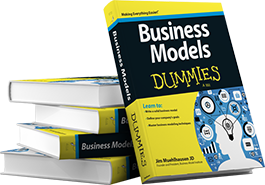Groupon Asks Investors to Ignore Their “Wildly Profitable” Statement
Is Groupon “wildly profitable”? That’s how Groupon co-founder Eric Lefkofsky described his company in an interview with Bloomberg in early June 2011. But now Groupon is singing a different tune. Groupon Inc. has filed an amended document for its planned initial public offering that asks investors to ignore Lefkofsky’s statement.
But why?
Perhaps it is because Groupon’s business model isn’t all it’s cracked up to be? Let’s look at the numbers and see what kind of story they tell.
Groupon Posts Net Loss of $146.5 Million
According for Forbes, Groupon boasted $713 million in sales for 2010. That’s good news. Even better news is their first quarter performance in 2011: $644 million in sales. So what’s the bad news? They posted a net loss of $146.5 million in the first quarter of 2011. Ouch. In case your math is as bad as mine, that loss equates to 22.7% of sales.
As the saying goes, “It’s not how much money you make but how much you hold on to.” Groupon isn’t holding on to much. In fact, they aren’t holding on to anything. The Groupon business model relies on paying current expenses with money they owe merchants. It’s the classic robbing Peter to pay Paul scenario but on a much larger scale.
Perhaps Groupon’s lawyers advised investors to ignore Lefkofsky’s statement because it’s simply not true. But are the founders really trying to pull the wool over investors’ eyes or do they really believe they can redefine what “profitable” means?
Groupon Pulls the Unconventional Card
Here is a quote from Groupon CEO Andrew Mason in his introductory letter that opens the prospectus:
“We don’t measure ourselves in conventional ways. There are three main financial metrics that we track closely. First, we track gross profit, which we believe is the best proxy for the value we’re creating. Second, we measure free cash flow—there is no better metric for long-term financial stability. Finally, we use a third metric to measure our financial performance—Adjusted Consolidated Segment Operating Income, or Adjusted CSOI. This metric is our consolidated segment operating income before our new subscriber acquisition costs and certain non-cash charges; we think of it as our operating profitability before marketing costs incurred for long-term growth.”
Is it conventional thinking that says you must make more money than you spend to be profitable? Perhaps. Maybe Groupon is on to something and before we know it the federal government will also be defined as profitable. But I have a feeling that a lot of investors prefer the “conventional” definition of profitable.
What are your thoughts? Do you think Groupon will be able to navigate out of these rough waters? Should we redefine what it means to be profitable?
Research by Joshua Monen










